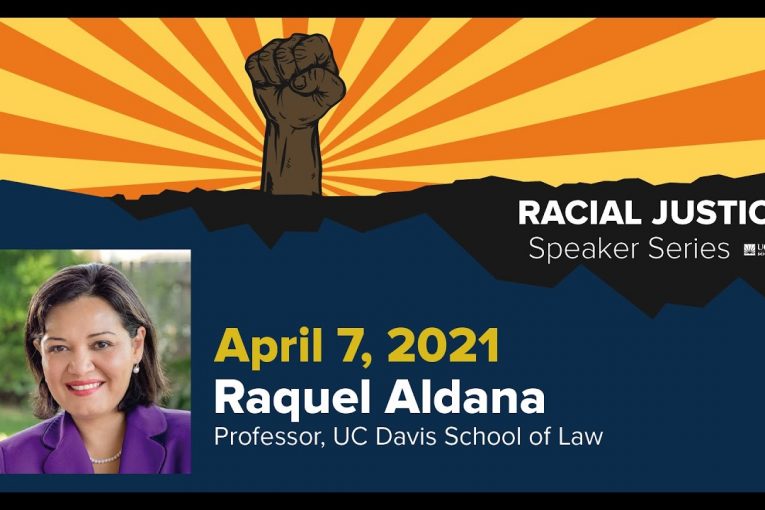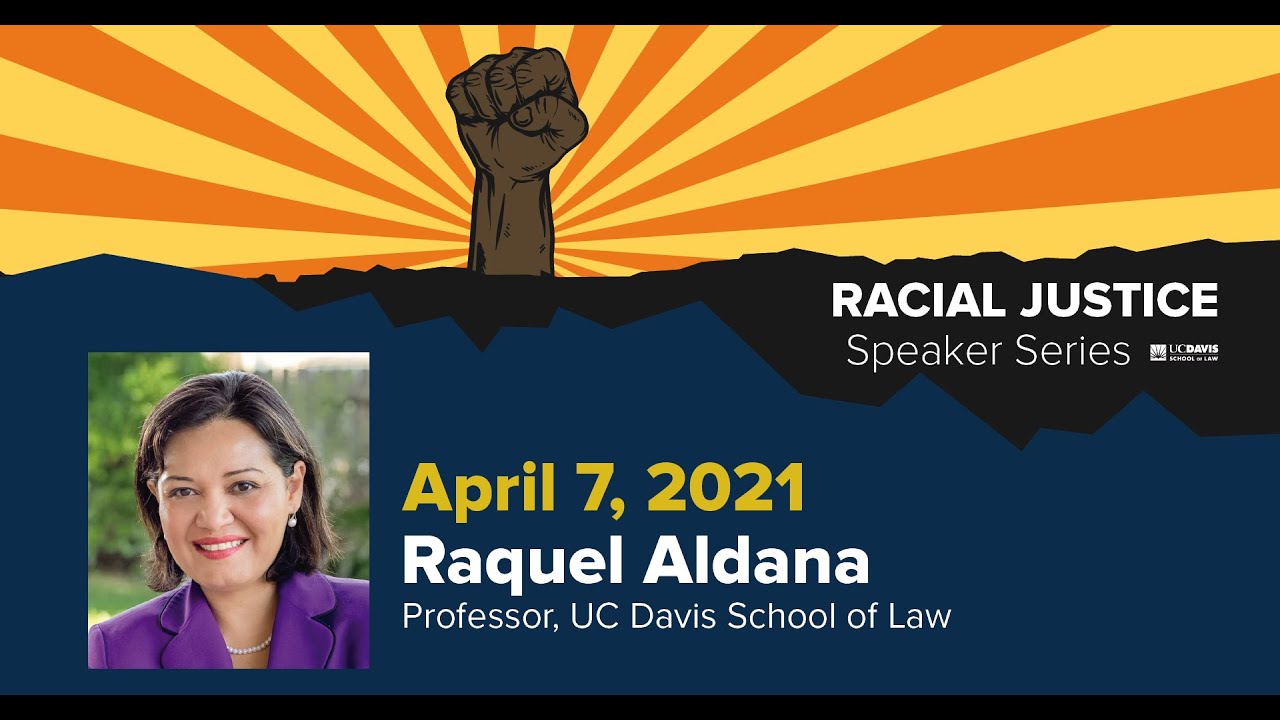
 By Jess Taylor
By Jess Taylor
DAVIS – UC Davis Law School held their last racial speaker series event on Wednesday, closing with their very own Raquel Aldana.
Aldana is a Harvard graduate that came to UC Davis in 2017 as the associate vice chancellor for academic diversity and transferred over to full-time teaching in 2020. She teaches asylum, criminal, refugee and immigration law. Her research concentrates on transitional justice, criminal justice reforms, immigrant rights and sustainable development in Latin America.
Dean Johnson of UCD Law smiled big, greeting those live on Zoom with him. He then explained that the law school began this series to talk about systemic racial injustice after African American men and women continued to be killed by police. The series aims to bring these issues to awareness then discuss possible avenues to reform these injustices and systemic problems.
Aldana came onto screen in a fashionable royal blue blazer with sleek black hair, deep red lipstick and rectangular, black-rimmed glasses. Her demeanor exuded passion for her topic on American immigration laws needing reform.
Before diving into her presentation, she thanked the audience watching from home, saying, “Seeing you all is a testament to how important these conversations are.” Furthermore, she felt honored to be a speaker in a series that has acknowledged the cruelties occurring in the nation.
The title of her presentation is “‘Citizenism’ and the Shackles of Borders.” Citizenism is a view in which United States citizenship is foundational on the distribution of rights that she argues must be dismantled. Additionally, Aldana explains the enforcement of the nation’s borders is racialized and punitive. The issues she raises leave immigrants unprotected and subject to brutality.
Emotionally engaging with the audience, she showed a photo of a two-year-old crying as Texas border officers search his mother, who was seeking asylum. Grief and frustration were written across her expression as she discussed this problem.
The child was taken from the mother, just as thousands of children have been when crossing the border with their families. The official government number for children separated from their families is 4,368, where 628 had yet to be reunited with their families under the Trump administration.
The Biden team discovered more than 1,400 parents had been deported without their children.
Backtracking to the history of immigration laws, Aldana said the U.S. Supreme Court declared deportation was not a punishment and incarceration is a response to illegally entering the states. Today, immigration power is privatized, leaving immigrants vulnerable.
Showing how immigration became a problem, Aldana explained how immigrants became criminalized.
“In the mid-1980s, we saw exponential growth in criminal laws of immigration,” she says. “Even citizens were criminalized for associating with illegals.”
After 9/11, immigration laws exploded as fear surged through the country. By 2020, prosecuting immigration crimes was over half of the criminal workload. With frustration, Aldana says, “Non-citizens and aliens have become the face of federal prisons. The crimes listed are for harboring, smuggling, immigration fraud, identity theft, with the crime of entry being the highest.”
Referencing back to the photo she shared, it has been speculated that if the mother had been treated as a human being, then it would encourage illegal immigration and bad parenting.
Immigrants have been victims of human rights violations as sexual misconduct, violence and racial slurs are no hidden problem.
Customs and Border Protection (CBP) agents have little to no repercussions for harmful acts committed. This agency has become militarized where the budget is almost 18 billion dollars used for increasing fencing, surveillance and other security measures.
One of the many issues of the CBP is how agents have negatively impacted indigenous groups located close to the border. Because agents cannot tell them apart from immigrants, they are put through frequent harassment and interrogations by agents.
Continuing the inadequacy of disciplinary measures, Aldana tells how sexual assault and abuses are unaddressed. Over half a million immigrants detained annually when seeking asylum are victims of torture and struggle from mental illnesses. There are over 200 detention centers nationwide where as much as 91 percent of immigrants are housed in private detention centers.
Making the issue more corrupt and unjust, as many as 80 people are subjected simultaneously in a courtroom with one lawyer representing all defendants.
“The lawyer has to represent sometimes hundreds in a rushed nature in a criminal trial. Many attorneys will meet their clients for the first time in the courtroom with only a few minutes to speak with them,” Aldana says.
One solution to the nation’s immigration misconduct is to change the due process system. Though it will take time and new leadership, it is achievable.
Before taking questions, she closed by saying, “Transformation of rights has to be cultural and has to be political and must take place locally and nationally. We the citizens with political power have to recognize that fundamental rights cannot be defined by citizenships or by open waters.”
Aldana’s presentation was pressing and concerning, but she concluded with faith that change is achievable. Leaving her audience with a multitude of present issues to ponder, she did not fail to encourage them that their power can change a system that seems beyond restoration.

Jess Taylor is in her senior year at UC Davis from a small town called Wheatland. She is finishing her studies in English and Human Rights.
Support our work – to become a sustaining at $5 – $10- $25 per month hit the link:
